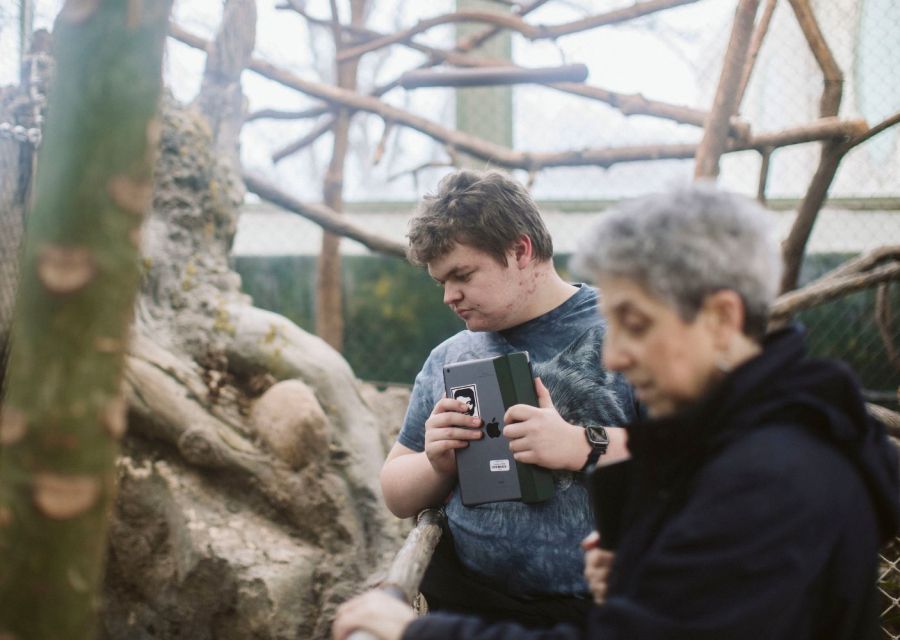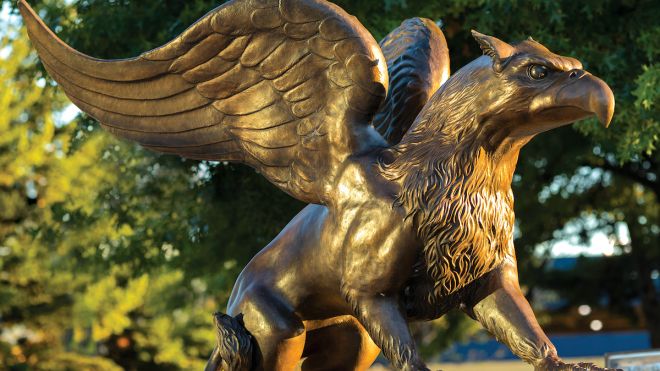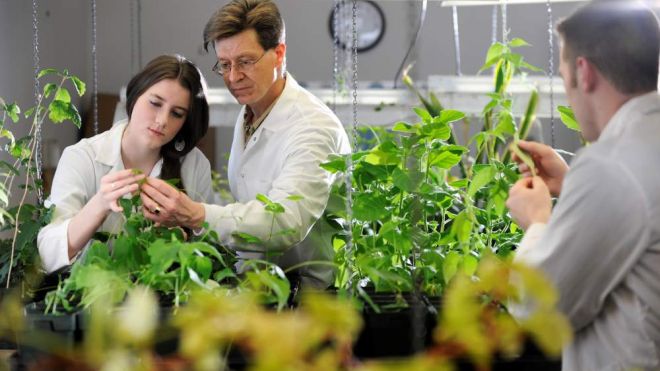
Buffalo, NY - The enigmatic world of the animal kingdom always captivated Neil P. Chace ’26. His fascination with the behaviors and interactions of such creatures led him to Canisius University and specifically, its animal behavior, ecology and conservation (ABEC) major. The program offered the perfect environment for Chace to pursue his passion and so when an opportunity arose to join Professor Sue Marguilis’ esteemed ‘Team Ape’ for research, Chace knew he couldn’t pass it up.
“There are very few college programs similar to ABEC,” says Chace. “It truly offers so many more great opportunities than any other schools I looked at.”
Under the guidance of Professor Margulis, Chace is engaged in a series of behavioral monitoring investigations at the Buffalo Zoo. The gorilla troop is one of his primary projects.
Armed with a keen eye for detail and a genuine love for the subject matter, Chace examines gorilla behavior before and after feeding times. The data that he and other ‘Team Ape’ members collect is pieced together and analyzed to help develop a more comprehensive understanding of how feeding routines influence the dynamics within the troop.
“While we don’t know yet what will or won’t be statistically significant, so far it appears as though the gorillas are more likely to be in-view and active after a feeding,” says Chace, whose research extends beyond the gorilla exhibit.
He is also examining the behavior, space use and interactions among a Buffalo Zoo exhibit that houses three distinct species of New World primates.
“It’s important to understand how different factors influence the behavior of zoo animals because that can be used to inform future decisions,” explains Chace. “For example,” he adds, “mixed-species exhibits are a rather common sight at zoos, so understanding the way animals interact in that setting can potentially inform the zoos of the future when planning for new mixed-species exhibits.”
As for Chace’s future, he wants to pursue a profession in zoo management.
Fueling those ambitions are the lessons he’s learning alongside Professor Margulis, the discoveries he’s making while engaged in real-world animal research, and his contributions towards the welfare and conservation of the very creatures that have captured Chace’s imagination for years.
“It has been a great opportunity to work under Dr. Margulis,” he concludes. “I've learned a lot about research methods and animal behavior but beyond that she has been able to provide a lot of useful advice when it comes to future career steps. Education becomes a lot more personal when you are working with a professor you know well, and especially when education continues outside of the classroom into actual real-world experiences.”



